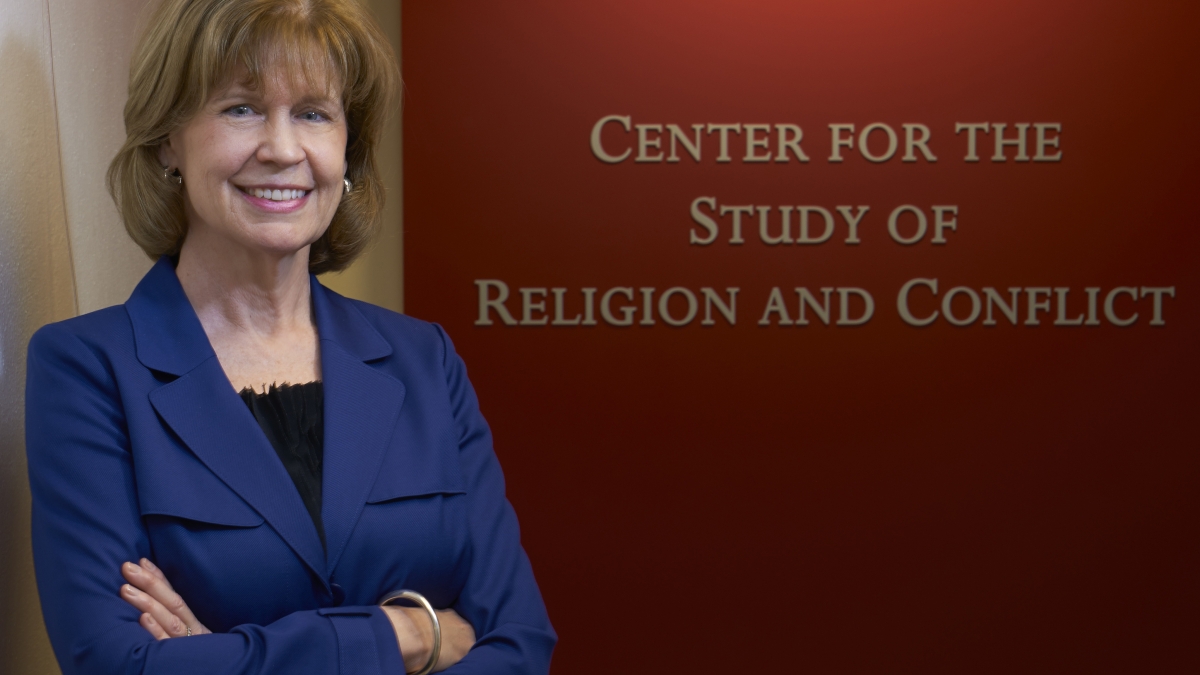Ten years of examining religion and conflict

Religion came roaring into the spotlight after 9/11. Largely ignored by policymakers and the public before then, it has become the subject of widely divergent views. Sometimes religion is tightly linked to conflict and violence, other times privileged as the only source of authentic moral values. The Center for the Study of Religion and Conflict moves past these caricatures to explore the persistent and ambiguous role that religion plays in the 21st century.
Launched in 2003 as one of the first initiatives of ASU President Michael Crow’s New American University, the center brings together faculty from across the university to explore the convergence of religion, politics and conflict, from the local to the global. Under the leadership of Linell Cady, it has quickly developed across multiple fronts on research, education and public programs.
“There is an incredible synergy within the center," Cady says. "It’s rare in a university of this size that a professor in history or religious studies would collaborate with a professor in psychology or computer science, but that is what we do here. We try to build relationships both internally and externally.”
The synergy has paid off. Since its founding, the Center for the Study of Religion and Conflict has been awarded over $10 million in funding from federal agencies, private foundations and individuals, including the National Science Foundation, the National Endowment for the Humanities, the Department of Defense, and the Ford, Henry Luce and Templeton foundations.
The awards have funded a broad range of research projects. Steve Neuberg from psychology, Carolyn Warner from political science and George Thomas from global studies have examined the role of religion in prejudice and conflict in more than 90 countries. Mark Woodward from religious studies and Hasan Davulcu from computer science are working with an international team of scholars to explore radical and counter-radical Muslim social movements across three continents. Cady and Warner have led an initiative addressing the intersections of religion, human rights and gender in international affairs.
The center has generated a strong following from the local community for its public programs, bringing over 1,000 people to campus each year. Its Alternative Visions lecture series, supported by a generous gift from local philanthropists Dee and John Whiteman, has brought in writers, scholars and practitioners from across the globe to packed audiences. Speakers have included Elaine Pagels, the eminent scholar of Christianity; Azar Nafisi, author of the best-seller "Reading Lolita in Tehran" and Peter Bergen, CNN analyst and author of award-winning books on Al-Qaeda.
Cady stresses that the center is also committed to advancing creative thinking about ways to mitigate conflict and foster a sustainable peace. In 2008 the Hardt-Nickachos Chair in Peace Studies, supported by a generous gift from professor emeritus Ann Hardt and her late husband Anthony Nickachos, was created to further advance this effort. Yasmin Saikia, recruited for the chair, leads this initiative. Since her arrival, she has convened international conferences, film festivals and faculty seminars to explore the resources of the humanities to advance peace, and to develop curriculum in this area.
To deepen student engagement, the center established an Undergraduate Certificate in Religion and Conflict, open to students from across the university, and the Undergraduate Research Fellows Program, which offers a special seminar and opportunity to work with faculty on research projects. Alumni of these programs have gone on to win prestigious awards, including the Truman, Fulbright and NSEP awards. Scholarships and grants are also available to students through the generosity of Friends of the Center.
“These are chances for students to engage in research with world-renown faculty and have conversations with their peers from across a variety of majors,” said Cady.
Looking ahead, Cady says that increasing international partnerships and exchanges is a priority as it secures its reputation as a leading global site for the study of religion, conflict and its resolution.
The Center for the Study of Religion and Conflict is a research unit of the College of Liberal Arts and Sciences. To learn more, visit csrc.asu.edu.